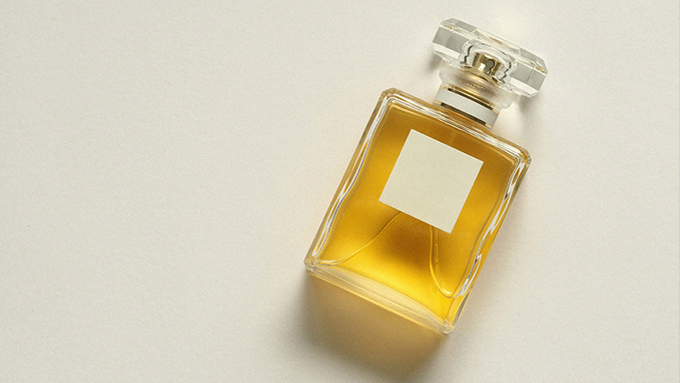The Rule of the Inalienability of the Author's Moral Rights
The relationship between the author and the product of their creative activity is protected by moral rights. The moral rights of the author set out in the Intellectual and Artistic Works Act numbered 5846 (“IAWA”) include the authority to disclose the work to the public, the authority to designate the name, the right to prohibit modification and the rights against persons who own or possess the original of a work. The moral rights are strictly bonded personal rights; therefore, they cannot be transferred to any person by the author, but the authority to exercise moral rights can be granted. In this article, the moral rights of the author and the inalienability rule are examined through the decision of the 11th Civil Chamber of the Court of Cassation dated 4.6.2018 and numbered 2016/11693E. 2018/4232K.
Review of the Decision of the Court of Cassation
A claim for declaration, prevention and prohibition of the infringement of moral rights and trademark rights, as well as a claim for pecuniary and non-pecuniary damages, was the subject of the decision of the 11th Civil Chamber of the Court of Cassation dated 4.6.2018 and numbered 2016/11693E. 2018/4232K. In this decision, the plaintiff asserted that he acquired the economic and moral rights of works from the artist, and that his economic, moral, and trademark rights had been infringed by the defendant. The plaintiff stated that he acquired, from the artists who created the work, all the economic and moral rights to eight fine art works in the form of graphic designs displayed on products such as bags, pens, notebooks, and t-shirts. The plaintiff alleged that the defendant used these fine art works on plates, bowls, glass, and chocolate packaging without permission, thus infringing the economic and moral rights that the plaintiff acquired from the authors. The plaintiff further alleged that the defendant had gained unfair profit and commercial reputation through these actions, that he had changed the designated names of the works and that he had used trademarks belonging to the plaintiff without permission. For all of these reasons, the plaintiff claimed declaration, prevention and prohibition of infringement of the moral rights and trademark right, as well as pecuniary and non-pecuniary damages.
The Court of First Instance held that the products at issue were works of fine art under article 4/6 of the IAWA, and that the authors of the works had transferred their economic rights to the plaintiff. The court further held that the defendant had used the works on products such as plates, bowls, glasses and chocolate packaging, and that the plaintiff's registered trademark was displayed on these products. The Court of First Instance partially accepted the claim and resolved to declare, prevent and prohibit the infringement of the economic and moral rights of the plaintiff, to impose non-pecuniary damages based on the violation of moral rights, and also to determine, prevent and prohibit the infringement of the trademark right, and to impose pecuniary damages. The defendant appealed.
Referring to their former decision dated 07.05.2009 numbered 2007/10504E. and 2009/5482K., the 11th Civil Chamber of the Court of Cassation stated that as per article 1/B(b) and article 8 of the IAWA, authors are real person artists who create works. They explained that it is not possible for the plaintiff as a legal entity to be qualified as the author of the work, because under article 13 et al. of the IAWA, the economic and moral rights on a work belongs to the author of the work. The plaintiff had the authority to exercise the economic rights pursuant to the assignment agreement to which he was a party, but the moral rights on the work can be used by the real persons who created the work. Therefore, the Court held that the moral rights of the plaintiff company could not have been infringed, and that the acceptance of the non-pecuniary damage claim was not correct, and they reversed the decision in this respect for the benefit of the defendant.
Moral Rights of the Author
The moral rights which ensure the protection of the moral relationship between the author and the work created by the author consist of the following:
- The authority to disclose the work to the public: The author of the work determines whether a work is disclosed to the public or not, and the time and form of publication. If the form the work is disclosed or published to the public is of such a nature as to damage the honor and reputation of the author of the work, the author is entitled to forbid the disclosure or publication of the work to the public, even if the author has given written permission to someone else. Waiving such authority of prohibition by contract shall be null and void (Article 14 of IAWA).
- The authority to designate the name: The authority to decide on the promotion or publication of a work to the public with or without the name of the author belongs exclusively to the author of the work (Article 15 of IAWA).
- Prohibition of modification: Abbreviations, additions or other changes cannot be made in a work or in the name of the owner of the work without the permission of the owner of the work. The author has the right to forbid any kind of modification that damages the honor and reputation of the work or impairs the quality and features of the work, even if the author has given written permission to someone else. Waiving such authority of prohibition by contract shall be null and void (Article 16 of IAWA).
- Rights of the author against persons who owns or possess a work: The author has the right to request from the owner and possessor of the original to temporarily benefit from the original of the work. If the work is unique and original, the author may request the work from the owner and possessor of the original to use in exhibitions. (Article 17 of IAWA).
The Rule of Inalienability
As a work is the result of the creative activity of the author and carries the characteristics thereof, the legislature intended to provide moral protection to the relationship between the author and their work. If the author assigns a right, the assigned right leaves the assets of the author and becomes a value within the assets of the right holder. The assignee becomes the owner of all rights attached to the assigned right. On the other hand, if the author grants authority to exercise the right, such a right remains within the assets of the licensor author. Hence, the economic rights that enable the author to benefit from the work economically are transferrable, while the moral rights that has a spiritual bond with the author are not transferable.[1] As a matter of fact, while article 48 of IAWA sets forth that the author can transfer the economic rights on the work to another person or grant the authority (license) to exercise the economic rights, there is no provision in IAWA with respect to the transfer of moral rights.
From the above-examined decision of the 11th Civil Chamber of the Court of Cassation, it is clear that the intellectual property right transfer agreement in this case was related to the transfer of the authority to exercise both economic and moral rights. The attention-grabbing issue here is that the 11th Civil Chamber of the Court of Cassation made a statement beyond the inalienability of moral rights, and specified that the authority to exercise moral rights cannot be granted. While there is no opposing view regarding the inalienability of moral rights, there are different decisions about whether it is possible to grant the authority to exercise moral rights. The Assembly of Civil Chambers of the Court of Cassation in a decision dated 28.05.2008 numbered 2008/368E. and 2008/393K., stated that the moral rights of the author listed in articles 14, 15, 16 and 17 of the IAWA are absolute and exclusive authorities that are formed by the personality of the author. Due to the bond between the work and the author, these rights can be asserted against everyone, and while the moral rights arising from the authorship cannot be transferred, the authority to exercise it can be granted.
While there is no provision in the IAWA setting out that the authority to exercise moral rights can be granted, article 14/2 of the IAWA designates that “the author may prohibit, even if the author has given written approval to others, the promotion to the public or the publishing of both the work and its adaptation, where the manner of disclosing to the public or publishing of the work is of such a nature as would damage the honor and reputation of the author”, and article 18/2 of the IAWA further states that “the author may prohibit all modifications, which prejudice the honor and reputation or damage the nature and characteristics of the work, even if the author has given written and unconditional permission.” Due to the right to prohibit granted to the author in these provisions, it can be deduced that the author can grant the authority to exercise the moral rights on the work to any person. Indeed, the Assembly of Civil Chambers of the Court of Cassation has accepted that the authority to exercise moral rights can be granted.
Conclusion
The moral rights of the author to a work consist of the authority to disclose the work to the public, the authority to designate the name, the right to prohibit modification and the rights against persons who own or possess the original of a work. These moral rights are strictly bonded personal rights; therefore, they cannot be transferred to any person by the author. While the transfer of moral rights is forbidden, granting authority to exercise moral rights is allowed. With the authorization of the right to exercise, the moral rights remain the assets of the author and the right holder will have the authority to benefit therefrom.
- Tekinalp, Ünal: Fikir ve Sanat Eserleri Hukuku, Vedat Kitapçılık, 2012, p. 164.
All rights of this article are reserved. This article may not be used, reproduced, copied, published, distributed, or otherwise disseminated without quotation or Erdem & Erdem Law Firm's written consent. Any content created without citing the resource or Erdem & Erdem Law Firm’s written consent is regularly tracked, and legal action will be taken in case of violation.






